Case Study: Smartphone Tree Tagging in Guatemala
The problem: Delays in preparing annual operating plans needed to get government approval of harvest license by forest communities and inability to track timber along the value chain
The solution: Using smart phone applications to tag trees for tracking, harvesting and preparation of operating plans thereby considerably reducing time to submit plans to Government and promote socially conscious enterprises
Context:
The forest in Guatemala is divided into large parcels and concessions, which are then granted to individual communities. The community’s further divide the land into five-year and one-year operating plans. The objective is to use the land sustainably so that areas are then locked from further harvest. Preparation of annual operating plans or POA Plan Operativo Annual was being carried out manually using the traditional clipboard and paper surveys, followed by weeks of data entry which took considerable time. This method was prone to error, had gaps in accuracy, and if any trees or protected monuments were noted incorrectly, workers had to return to the forest for adjustments to the survey – which increased the cost as well as time. The survey is a key driver in decision-making for the rest of the year. Sooner the survey could be completed, the sooner the concession could prepare the operating plan, get the approval, finalize the budget, allocate resources and equipment, and actually begin putting people to work. Use of specially designed Apps was the solution.
The technology:
Tree Tag is an emerging smart phone-based supply chain traceability system developed by Earth Observation Systems that tracks the location of logs transported from the forest to the mill. It requires all authorized personnel—from those cutting trees to those processing logs—to report activities and volumes, raising alerts when there is suspicious activity. Only trees previously authorized for logging can enter the system. In addition to testing the app, solar-powered charging station, Renogy Firefly portable solar kit, and satellite wireless, Inmarsat IsatHub were also used. This combination would bring computing power and connectivity into the hands of forest workers in the remote wilderness.
The process:
Tree Tag Survey application was brought to the Mayan Biosphere Reserve of Petén, Guatemala for field testing with a community-based forest concession called Custosel (short for Custodios de la Selva; roughly translated as "Keepers of the Jungle"). Custosel is an organization that takes pride in keeping the forest healthy and productive, while empowering one another and uplifting the local community. After an initial demonstration at the Custosel headquarters in Melchor, the GPS boundaries for the survey was discussed to set the geo-fence properly, test the app and obtain feedback. The trees having commercial potential were coded, GPS coordinates of protected "moniticulos" - artificial earthen mounds that are remnants of the ancient Mayan Civilization were carefully documented as well as certain trees marked for "futura cosecha" which would not be touched again for another twenty-five or even thirty years.
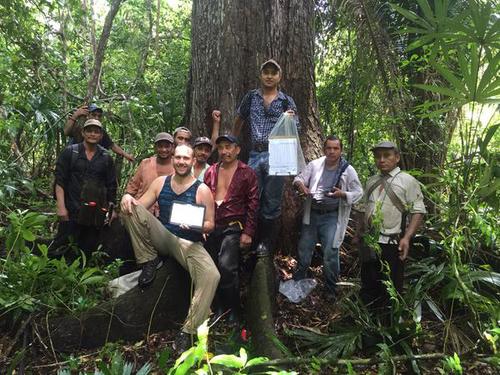
The knowledge of the local community members was critical in this process. The satellite wireless hub was used to send the day's reports back to the home office so that the GIS specialists could begin plotting the trees.
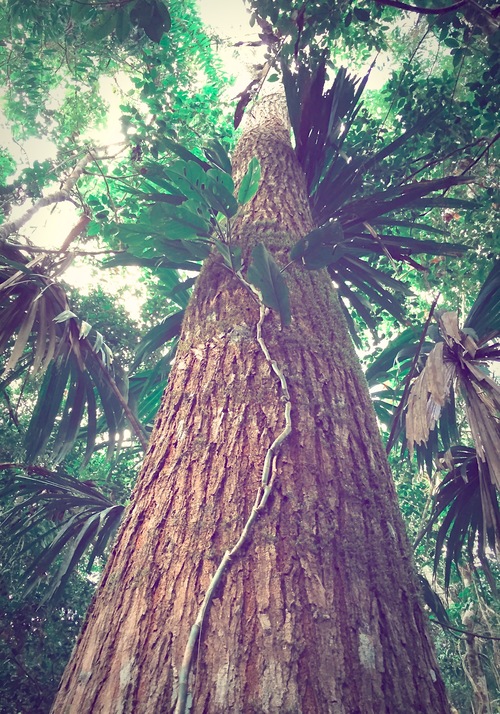
The team worked directly with regional forestry management companies, sustainable harvest experts, local community members, and a guitar company from the United States. The first tree - a beautiful specimen of Caoba; a type of rich mahogany vital to the region – was logged in the Tree Tag Generator application which is a front-end for our digital supply chain and traceability system.
Guatemala has the “gold standard’ when it comes to an existing paper-based traceability system for forest products. Legal community-based concessions are appointed land from which they can obtain licenses for the harvest of forest products in accordance with strict sustainability standards, licensing, and certification. Through the work of national government, NGOs, international oversight, and legislation - such as the Lacey Act in the US and EUTR in the European union - and through the hard work and dedication of the community-based forestry cooperatives, Guatemala has established a working model which could be adapted to other countries. In Petén, 25 years of responsible practices within the forest concession system have demonstrated increased growth of individual trees and healthy, productive forests that are being managed with great care. This system has supported ethical businesses which keep the management of natural resources in the hands of local communities and indigenous peoples, while providing stable income and a prosperity that allows them to further develop services and infrastructure in those very same communities. As well, it bolsters long-lasting relationships throughout the supply chain, fostering deeper trust and confidence in the parentage of the raw materials.
Harvesting of the individual tree is carried out with great care to ensure that even neighboring fruit trees - which local animals were dependent on for food- were spared destruction during the felling of the selected tree. The tree is brought down carefully in order to maximize the productive yield of these precious resources.
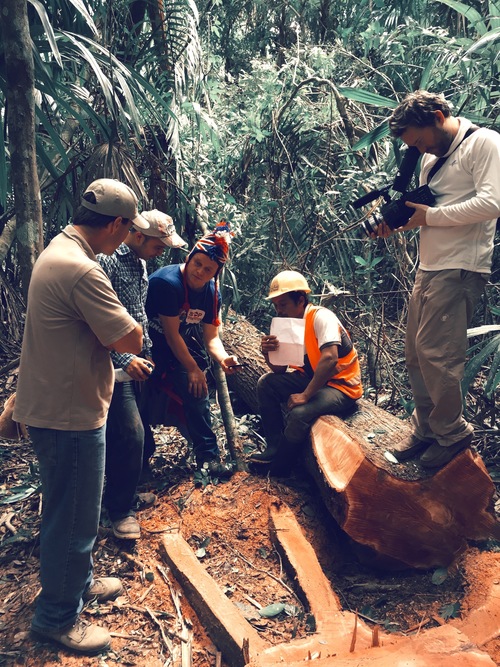
This was necessary as in the words of Spencer Ortiz - a regional legend, a sustainable harvest advocate, and staunch defender of the forest – “this grand tree was making the sacrifice so that the forest as a whole could be managed effectively and remain productive for generations to come”.There is a delicate balance in creating economic opportunities that encourage stakeholders to protect the forest from destructive interests.
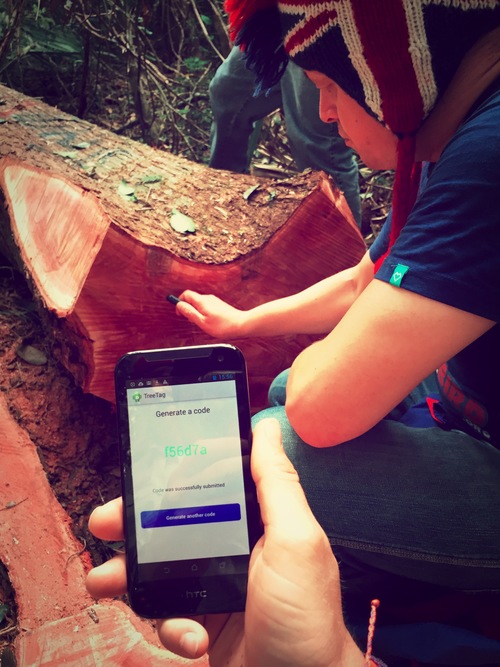
Once the tree has fallen to the ground, the tag generator creates a one-time code - which is based on species, time, date, and physical location – which is written on the trunk and stump of the tree. This same code will be used to track the tree - and its individual pieces of lumber - as it moves through the supply chain. The result is that customers of Bedell Guitars will be able track their product right back to the very community where the wood originated, right down to the logger that felled the tree, and to the parent tree itself.
Companies such as Bedell are one of the many emerging industries who are shifting towards making forests and the communities dependent on them sustainable.
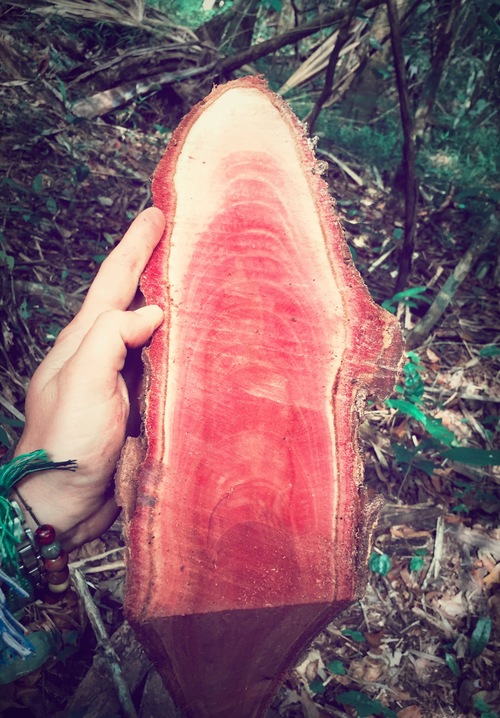
Enhancing the value chain with digital traceability allows foreign suppliers and customers in the US / EU to easily adhere to legislation which puts the onus on businesses in validating parentage of their materials. It also helps in reducing illegal logging of precious natural resources. Source: http://www.earthobservation.com/fromthefield/